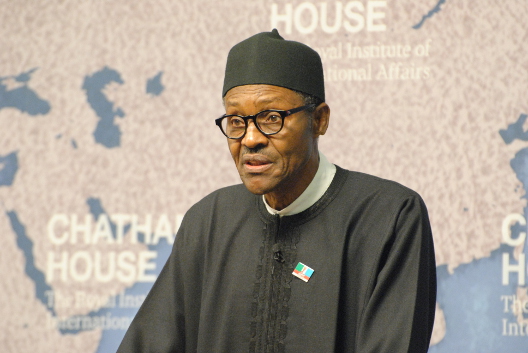 Bottom Line Up Front:
Bottom Line Up Front:
• On Tuesday, retired military dictator General Muhammadu Buhari surged to victory over incumbent President Goodluck Jonathan in Nigeria’s most hotly contested presidential contest since the end of military rule
• Buhari’s win stunned observers: it is the first time that an incumbent has been defeated in Nigeria’s history
• Perhaps more surprising still, the incumbent president, Goodluck Jonathan, preempted a much-feared round of violent protests by quickly and gracefully conceding victory
• The election represents a quantum leap forward for Nigeria’s democracy, but Buhari faces a daunting set of challenges: the Boko Haram terrorist organization is degraded, but remains a potent threat to stability in the north; Nigeria’s economy is slumping badly in the wake of falling oil prices, corruption remains endemic, and amnesty payments in the restive Niger Delta are ending; perhaps most challenging, the president-elect must now pivot from running an opposition campaign to governing a broad coalition of diverse interests.
Nigeria’s President-Elect Muhammadu Buhari is a Muslim with strong ties to the north, where the Boko Haram insurgency has been concentrated. A onetime military chief who overthrew an elected president in 1983, inaugurating a series of coups and countercoups—including the one that tossed him out less than two years later—Buhari has run unsuccessfully for the presidency three times in the past twelve years.
This time, Buhari managed to unite Nigeria’s opposition factions into a successful coalition, and built a simple but effective campaign platform centered on the public desire for change. Public disapproval of President Jonathan’s handling of everything from Boko Haram—which has killed over 15,000 people since 2009—to corruption, crime, and the economy, turned the election into a referendum on the ruling People’s Democratic Party (PDP). Post-election results indicate hefty PDP deficits not only among in the Muslim north, but in Lagos, the southwest, and the middle belt of the country. With the country roughly divided down the middle between Muslims and Christians and the security concerns concentrated in the predominantly Muslim north, Buhari’s path to a victory margin of 2.5 million votes required significant inroads among southern Christians. Such voting across ethnic and religious fault lines is an unprecedented development, but it probably stems not from enthusiasm for Buhari, but from Buhari’s astute choice of the prominent Yoruba evangelical pastor Yemi Osinbajo as his running mate.
As a candidate, Buhari was short on detailed proposals for governing and didn’t present a blueprint for Nigeria’s economy. He must now offer an agenda that addresses the serious challenges his country faces while also managing the disparate coalition he assembled to secure the election victory.
Primary among these challenges is Boko Haram. The group has recently suffered dramatic losses at the hands of a multinational offensive but remains dangerous: it recently pledged allegiance to the Islamic State and has stepped up terrorist attacks in the aftermath of its conventional losses.
Buhari will have to sustain the military push while also implementing effective solutions to the insurgency, which will require a combination of political, economic, and social programs—that is, improved governance, economic opportunity, and social welfare—to truly secure the country. Positive headlines, too, will be harder to generate: now that Boko Haram’s urban strongholds have been liberated, Buhari will essentially be left chasing a guerrilla insurgency from bush to bush. Progress is likely to be slow and hard-won. It will also be essential to improve relations with Nigeria’s neighbors, whose security and cross-border trade revenues have been undermined by Jonathan’s failure to contain the insurgency.
Moreover, in Nigeria’s southeast, a reintegration program for former militants in the oil-rich but traditionally restive Niger Delta ends this year. The Delta region was a Jonathan stronghold and Buhari will have to find a way to placate its factions enough to ensure they do not return to violence, as some threatened to do if Jonathan was not reelected.
Buhari is also facing economic headwinds. With the largest proven petroleum reserves in Africa, it is no surprise that, despite the diversification of the economy in recent years, hydrocarbons still make up some 80 percent of the Nigerian government’s revenues. Consequently, the dramatic fall in global oil prices has taken a heavy toll on the Nigerian economy: the Naira is trading at record lows against the U.S. dollar, the Nigerian Stock Exchange is down by almost one-third from a year ago, and expectations for economic growth in 2015 have been revised downward, as has the federal budget, which has been recalibrated twice in recent months—and will probably have to be again after the election.
Jonathan had presided over impressive economic growth and several major infrastructure initiatives until oil prices fell. The public will expect Buhari to find a way to deliver similar results with far fewer resources. But Buhari is entering office with enormous goodwill, and if he can succeed in making some high-profile progress on corruption, he may well be able to extend the voters’ honeymoon through the early rough patches.
Image: General Muhammadu Buhari speaks at Chatham House in February. Photo licensed under Creative Commons.
